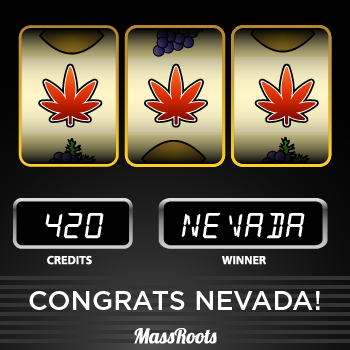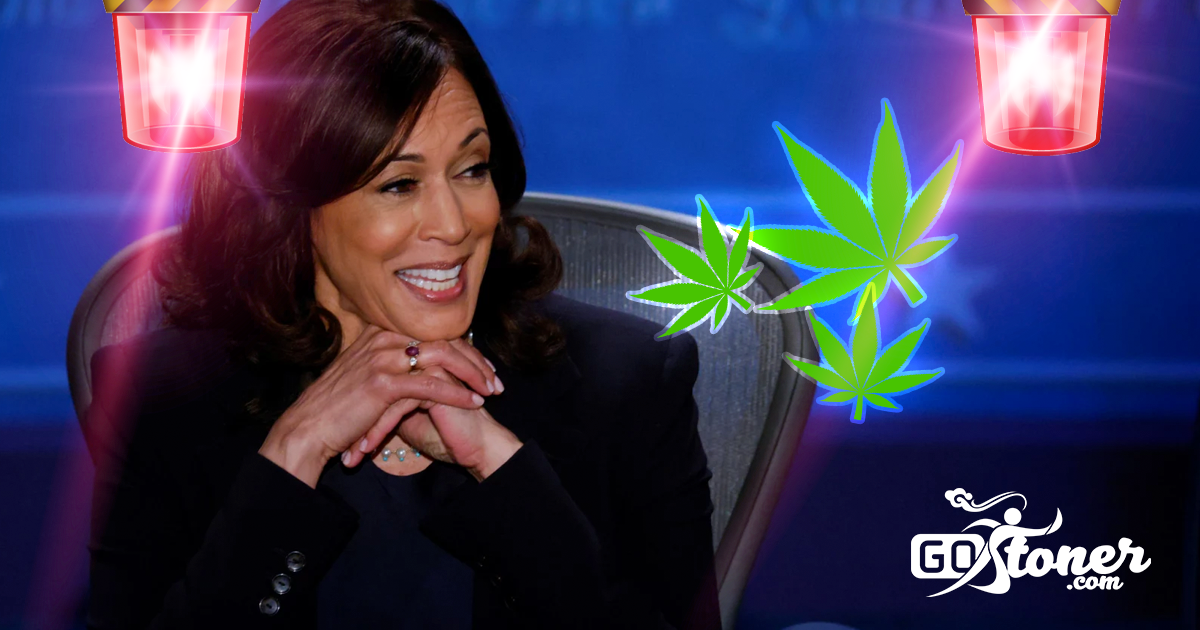Nevada’s New Recreational Cannabis Laws
Along with Colorado, Washington, Oregon, California, Massachusetts, Maine, and Washington, D.C., Nevada has set itself up for massive returns in the recreational cannabis industry. The state joins its Western cousins in marijuana legalization solidarity this month, adding to the adjoining state borders of California-Oregon and Washington-Oregon. Although transport of cannabis is not legal across state lines in the United States, individual states and their law enforcement communities may soon have to grapple with that issue. Nevada is home to S. Rowan Wilson, the woman who was prevented from buying a legal firearm for self-defense following her application and receipt of a medical marijuana card. The 9th U.S. Circuit Court of Appeals upheld the law refusing sale of firearms to illegal drug users due to existing federal laws that list marijuana as a Schedule I drug. Nevada is also home to Question 2, the Nevada Marijuana Legalization Initiative, and the 54.47% of residents who voted yes to legal recreational cannabis sales in their state.
At a Glance
- A dangerous underground market will be replaced with a tightly regulated system.
- Marijuana will be produced and sold by licensed businesses instead of cartels and criminals.
- Law enforcement officials will be able to spend more of their time and limited resources addressing serious crimes instead of enforcing failed prohibition laws.
- Products will be tested, packaged, and labeled to ensure marijuana is not contaminated and consumers know what they are getting.
- Unlike illegal dealers, businesses that sell marijuana will ask customers for ID and only sell to adults.
- Marijuana consumers will not be exposed to other illegal products that are often found in the underground market.
- Create and support thousands of jobs for Nevada residents.
- Generate more than $60 million dollars in annual tax revenue, including approximately $20 million per year for Nevada schools.
- Legal marijuana businesses will utilize the products and services of other local businesses and contribute to more than $1.1 billion in overall economic activity.
- Adults will no longer be punished for using a product that is less harmful than alcohol to the consumer and to society. Currently, thousands of adults are arrested every year simply for possessing small amounts of marijuana.
- The initiative will repeal marijuana prohibition laws that have disproportionately impacted communities of color. According to a 2010 ACLU report, African-Americans in Nevada are 4.5 times more likely to be arrested for marijuana possession than whites despite similar rates of use.
Information taken directly from Nevada’s “Yes on Question 2” website.
Nevada’s Marijuana Laws

Currently medical marijuana is legal in Nevada, and patients with AIDS, cachexia, cancer, glaucoma, PTSD, persistent muscle spasms/seizures, severe nausea or pain, and other conditions approved by the state of Nevada can legally purchase it. Medical patients can have 2.5 ounces of edible marijuana products or marijuana-infused products, and up to 12 mature plants if they reside outside of a 25-mile radius of a dispensary. Caregivers must be 18 years of age or older, and the number of registered patients in Nevada is a strong 20,773 as of July, 2016.
Nevada’s new recreational marijuana law would allow possession of up to one ounce of marijuana or 1/8 of an ounce of concentrated marijuana product for adults 21 and older. Adults would be able to grow up to six marijuana plants in an enclosed, locked area for personal use only. Recreational marijuana dispensaries will be regulated by the Nevada Department of Taxation, and only established medical marijuana stores, production facilities, and cultivators, will be offered licenses during the first 18 months of legalization. Nevada will also allow wholesale liquor dealers to obtain marijuana distributor licenses in that state. All facilities and establishments must remain outside of 1,000 feet of schools and 300 feet of community centers, and a limited amount of dispensaries will be allowed in communities based on their size. For instance, a large community of 700,000 or more such as Clark County where Las Vegas is located can have up to 80 dispensaries, cultivation facilities, and productions facilities taken together; smaller counties of less than 55,000 can only have two.
Nevada will impose a 15% excise tax on cultivation facilities’ marijuana sales, and its annual licensing fees will run from $3,300 to $30,000 depending on the type. Taxes will cover the Department of Taxation and local governments’ costs related to the measure, and if there is extra it will be put in the State Distributive School Account. Driving or working under the influence of cannabis will be still be illegal, as will selling or giving it to anyone under 21, according to Ballotopedia. As of January 1, 2017, adults will be able to purchase legal recreational marijuana, but it may take three to eight months before dispensaries are regulated properly, so don’t count on buying it in Vegas before then. Nevada’s hot tourist economy hopes that “lounges and even boutique hotels” will eventually allow cannabis consumption, but that’s a whole ‘nother ballot measure.
What About the Federal Marijuana Laws?

As more states legalize medical and recreational cannabis, and scientists and medical experts in general begin to explore and report back on the positive effects of cannabis, the federal government remains staunch in its opposition to changing its drug laws to reflect the sea change in marijuana beliefs across the nation and the world. States will continue to legalize cannabis, and there will likely be some holdouts; Arizona voted against cannabis legalization, which may in part have been due to inaccurate anti-cannabis ads run on television there prior to the November 8 election. The federal government has said it supports PTSD cannabis research, as well as medical research into the healing properties of cannabis; it’s only a matter of time before the Schedule I wording will have to be changed. When it is, most states will be ready for full cannabis legalization across the nation.







